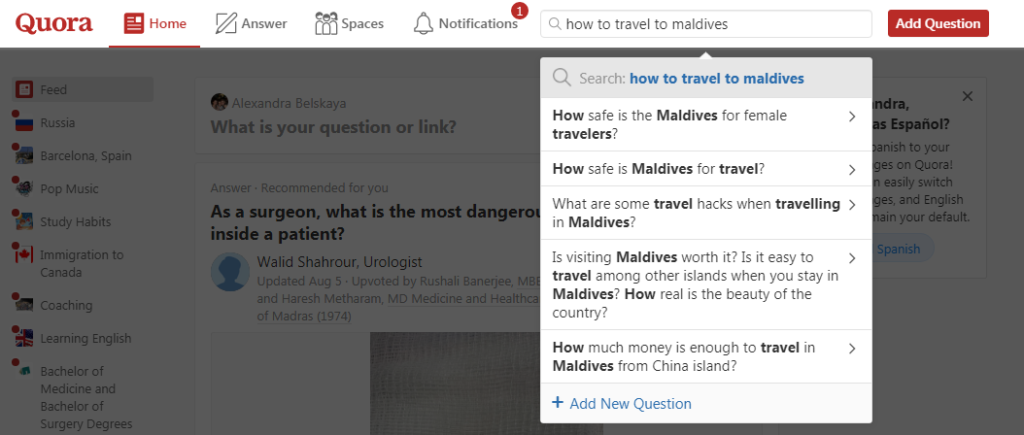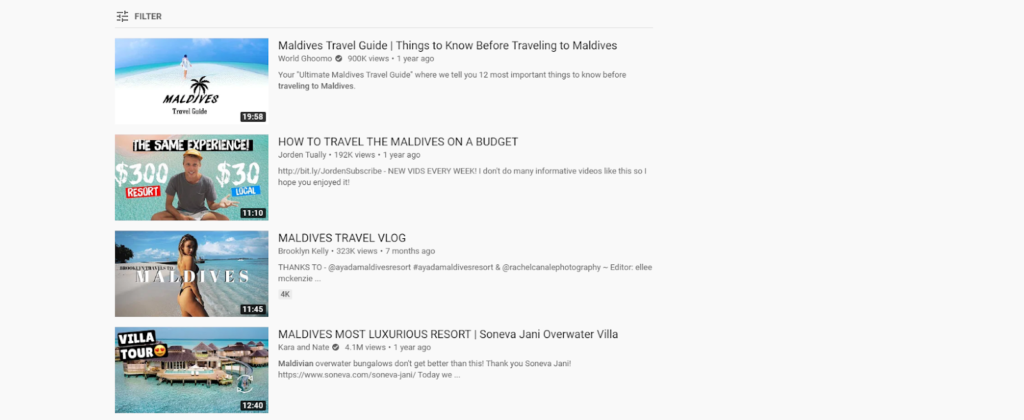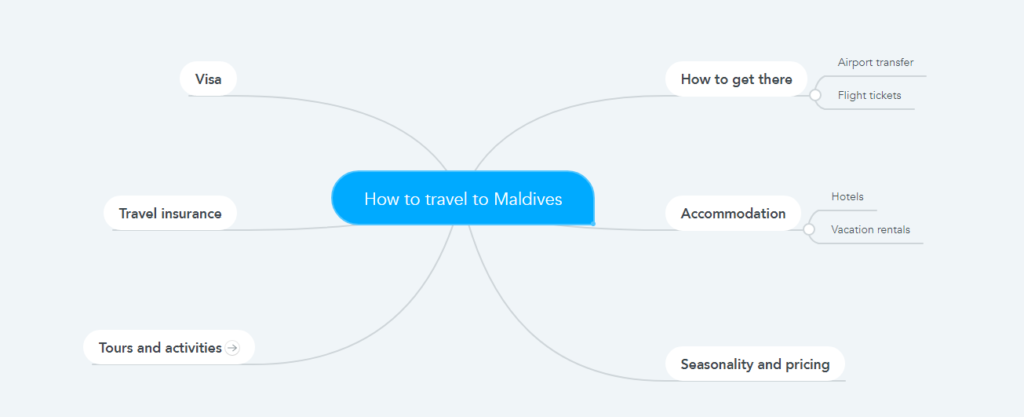Should I Cover Topics About Which I Know Nothing?
This is what draws many of us to content writing in the first place: an opportunity to learn something new, push yourself outside your comfort zone, and test the limits of your writing abilities.
However, this kind of adaptability doesn’t come naturally to everyone. The skills needed to feign such expertise may require a lot of practice and time to build, but this doesn’t mean you can’t succeed. By practicing a lot, you’ll always have things to write about.
How to Cover a Topic You Know Nothing About
How do you write about something you don’t know about? It’s actually pretty easy if you follow a simple algorithm: do proper research, accumulate relevant data, ask for an expert opinion, and make a post. Thus, you’ll always have something to write about. Now, let’s see how to do it step-by-step.
Understand Your Audience
First things first, the aim of writing a blog post is to provide your audience with valuable information and motivate them to come back to your website again and again. This is pretty easy if you already have an established audience, otherwise, this step might take a while.
Spend some time researching statistics as well as the feedback your audience leaves. Try to understand what they struggle with and how you can help them. This knowledge will determine the language type and research depth of your article:
- Who is your audience?
- Do they have a basic knowledge of the topic?
- Will they appreciate professional terminology or find it confusing?
Let’s say you are writing a blog post on how to go on vacation to the Maldives, but don’t know how to cover the “how to get there” thing. A little research will show that almost half of the travelers come to the islands from Europe, so tips on how to get there from, say, London or Berlin can be really useful.
Do Research
You need to understand what kind of information people look for and then collect all the relevant data. Below are some strategies to help you collect juicy data for your blog post.
Google the Topic
The first step is simply to Google the topic. Start by exploring the materials that already exist, but try to only rely on knowledgeable sources. How do you find these? Pay close attention to:
- Sites with expertise, focusing on only one niche and backing up facts with evidence
- Non-commercial platforms providing unbiased information
- Resources with many followers
- The most recent publications
- Professionally designed websites (this isn’t always the rule, but a more professional site might indicate that the resource owner is serious about their project)
- Articles with credentials
- Platforms with many backlinks
Read Social Media and Forums
The next step is to get a sense of public opinion about the topic. This is important, as real users can provide you with context and lend insights into how it all works in practice.
The first place to research might be Quora. Not only does it help to find out what people are asking, but Quora also shows related queries.

Facebook can be especially useful with its “Related Articles” feature, which shows relevant materials that you might not have otherwise come across.
Also, check the relevant forums and discussion boards. In the travel niche, you can start by exploring the most well known forums, such as Trip Advisor, Travellerspoint, Thorn Tree by Lonely Planet, etc.
Check the News
Check if there is any news that could influence your subject. This is especially important for travel bloggers. For instance, if you write about vacations to a sea resort, make sure to check the local news. If there was, say, a hurricane, your blog post will be irrelevant no matter how well you describe the advantages of the resort.
Study Basic Concepts
To be able write logically and truthfully, it is important to acquire a solid understanding of the basic principles, terminology, and facts, as well as the logic behind how these things are correlated.
When researching your subject, check the meaning of every seemingly significant term that you don’t understand. To do so, either Google the term (you can write “define:[your word]”) or use a thesaurus or dictionary. If you still feel confused, consult with an expert.
Explore Foreign Sources
Even though most significant research results, findings, and news stories are usually translated into English, it never hurts to explore some authoritative foreign sources.
It is even more important if you are writing in any language other than English. This will provide you with more insights, a better perspective, stronger evidence, and, almost certainly, an advantage over your competitors.
Watch Videos
Videos are another great source of information. YouTube is the second-largest online platform worldwide. So, what kind of information can you find there? Webinars, conference recordings, animated videos, etc. You might also incorporate videos into your writing to inspire users or help them understand a complex subject.

Test the Product Yourself
Last but not least, try to use the product/services yourself, should such an opportunity arise. Thus, you’ll be able to share personal experience, which is naturally more credible for readers. Be sure to recommend a nice product.
If writing about traveling, it might be too expensive to put up the cash and purchase a service just to write a blog post. But you can, for example, try to book a hotel or flight tickets, discuss vacation options with an agency, or go through another step-by-step travel process just like your readers would.
Use Mind Maps
Once you’ve gathered enough information, it’s important to structure your findings. To do so, consider mind mapping: place your topic in the center of a blank page and write other related concepts/problems/ideas around that central item. You can show the relationship between notions by using different colors or distance from the center of the page.

Mind maps work just like the human brain and help generate more ideas, improve your productivity, and find connections between facts (even hidden ones). You’ll have all the necessary information in a single glance and be able to more effectively structure your writing.
Consult With Experts and Get Quotes
Expert opinion will not only help you clarify certain notions, it will also give more weight to your writing. Most likely, your credibility can’t come from personal experience on a topic you are unfamiliar with. Thus, sharing quotes from experts will come in handy.
Experts come in many forms. They can be a business representative, a source at a university, a blogger in the same niche, a client, etc. For example, a client can introduce you to additional context and share their pain points. Some experts will help deepen your knowledge. Finally, an average reader can look at your content with fresh eyes and help you identify places in your piece that might be obscure and need more attention or details.
How do you reach out to experts? Prepare your questions in advance and, after the interview, ask permission to use their quotes in your post. Also, you can ask whether your contact would be willing to respond to any follow-up questions or perform a fact-check once your post is ready (in an ideal scenario).
Proceed to this step only after doing proper research on your own. Thus, you won’t ask basic things that can easily be clarified on the Internet. Second, you’ll be able to come up with questions that are truly important and require expertise.
Write
Once you’ve gathered enough information, it’s time to put it down on paper. Starting is always the scariest part, so try to make a draft of your article first. Ideally, do this in one sitting to avoid wasting time on the “entry” process. Then, take a break and come back later with a fresh pair of eyes.
The next step is to double check the facts in your article and improve your writing where possible. Look for phrasings that might need some additional clarification or detail, as well as sentences that can be shortened without losing important information. Ensure that your writing is coherent and all parts are logically connected.
Perform Fact Checks
This is important at every stage of your work, but especially in the end, when the writing is complete. Make sure that every fact in your article is accurate and can be backed up with evidence. At this stage, if possible, you can also submit the piece to an expert for a fact check.
Proofread
Proofreading your article helps ensure that there is no bad grammar, punctuation, misspellings, etc. It might be better to submit your writing to a professional proofreader, who can guarantee your article is mistake-free. Don’t ignore this step, especially if you write in a non-native language.
Get Feedback
It’d be great to get outside feedback before posting your article. This feedback might come from a colleague, friend, or partner, but should, ideally, be from someone with relevant expertise. A fresh pair of eyes can help you find places that are still difficult to understand and need additional clarification. Alternatively, your perspective might not show the entire picture, so feedback will help you fill in any missing parts.
How to Write About Something You Don’t Know
Writing about topics that fall outside your area of expertise might be more common than you think. To make a great post, you’ll need to do proper research, consult with both experts and customers, and fact-check all the information that you gather. Doing this preparation will help you understand your topic in more detail. You’ll need to put all the data you found on paper and ensure it is tailored to your target audience’s interests.




